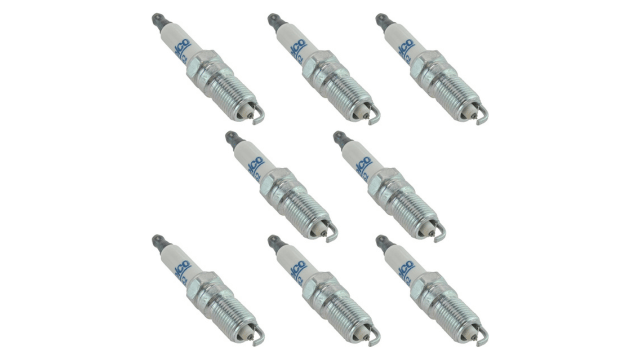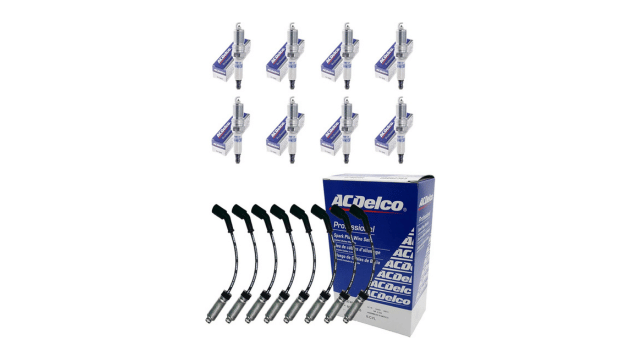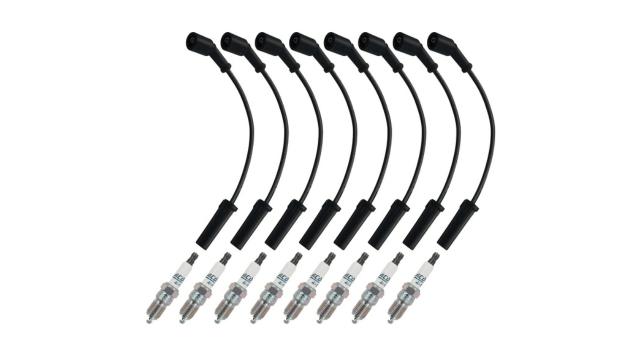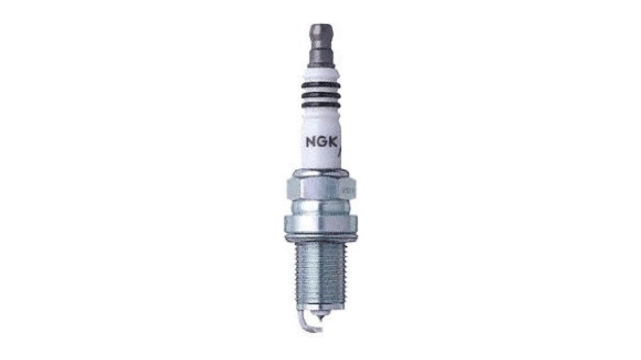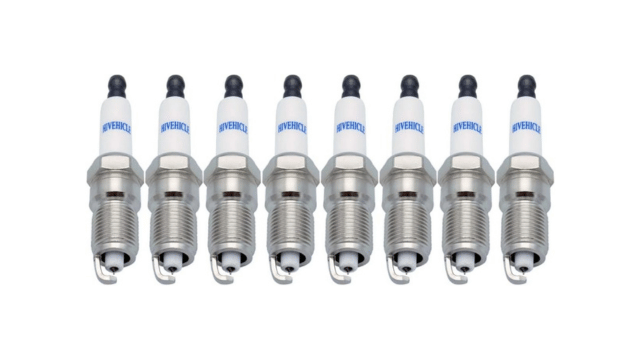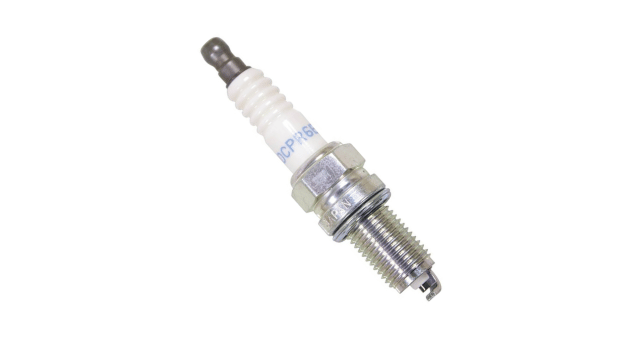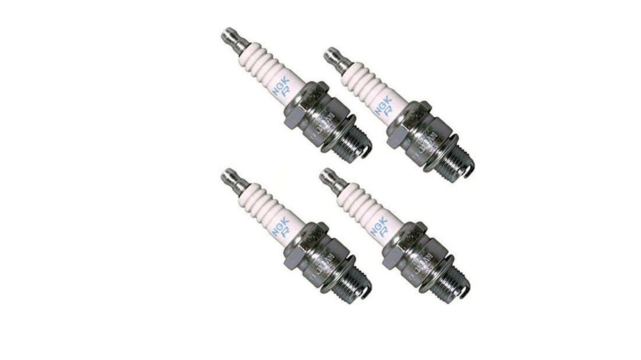Spark plugs are a crucial component of your vehicle’s ignition system, responsible for igniting the air-fuel mixture in the engine’s combustion chamber. They play a vital role in ensuring optimal engine performance, fuel efficiency, and overall longevity. A high-quality spark plug can lead to smoother engine operation, improved fuel economy, and reduced emissions. Conversely, a subpar spark plug may result in poor engine performance, higher fuel consumption, and increased emissions.
This guide will delve into everything you need to know about spark plugs—what to consider before buying, the different types available, their benefits, and essential maintenance tips. By understanding these factors, you can make an informed decision and choose the best spark plugs for your vehicle.
Best Spark Plugs Buying Guide
Understanding the Importance of Quality Spark Plugs
Spark plugs play a crucial role in the performance and efficiency of your vehicle’s engine. These small but mighty components are responsible for igniting the air-fuel mixture in the combustion chamber, essentially powering your car. Choosing the right spark plugs can significantly impact your engine’s performance, fuel economy, and overall longevity. This guide will delve into the key factors to consider when selecting the best spark plugs for your vehicle, ensuring you make an informed decision that will keep your engine running smoothly for miles to come.
Types of Spark Plugs
There are several types of spark plugs available on the market, each with its own set of characteristics and benefits. Copper spark plugs are the most traditional and have been used for decades. They offer good performance and conductivity but may need to be replaced more frequently than other types. Platinum spark plugs provide improved longevity and maintain a consistent spark over a longer period. Double platinum spark plugs feature platinum on both the center and ground electrodes, offering even better durability and performance. Iridium spark plugs are known for their superior strength and longevity, often lasting up to 100,000 miles in some vehicles. They provide excellent ignitability and require less voltage to produce a spark. Finally, silver spark plugs, while less common, offer excellent thermal conductivity and are sometimes used in high-performance or older European vehicles. When choosing between these types, consider your vehicle’s specific requirements, your driving habits, and your budget.
Heat Range and Performance
The heat range of a spark plug refers to its ability to transfer heat from the firing tip to the engine’s cooling system. Spark plugs are classified as either “hot” or “cold,” with hot plugs having a longer insulator nose and cold plugs having a shorter one. Hot plugs are designed to run at higher temperatures and are ideal for vehicles that frequently operate at low speeds or in stop-and-go traffic. Cold plugs are better suited for high-performance engines or vehicles that regularly operate at high speeds. Choosing the correct heat range is crucial as it affects the plug’s ability to self-clean and maintain optimal operating temperature. Using a spark plug with the wrong heat range can lead to pre-ignition, fouling, or even engine damage. Consult your vehicle’s manual or a professional mechanic to determine the appropriate heat range for your specific engine.
Material and Durability
The materials used in spark plug construction significantly impact their performance and longevity. Copper core electrodes provide excellent conductivity but may wear out faster than other materials. Platinum and iridium electrodes offer superior durability and maintain their gap size longer, resulting in consistent performance over time. Some high-end spark plugs feature precious metal alloys or even multiple precious metals to enhance performance and longevity further. Consider your vehicle’s age, your driving habits, and how long you plan to keep your vehicle when selecting the material. While premium materials like iridium may come with a higher upfront cost, their extended lifespan and improved performance can offer better value in the long run.
Gap Size and Adjustability
The spark plug gap is the distance between the center and ground electrodes. This gap must be precisely set to ensure optimal spark and combustion. Some spark plugs come pre-gapped for specific vehicle models, while others may require manual adjustment. It’s crucial to check and, if necessary, adjust the gap according to your vehicle’s specifications. Improper gap size can lead to misfires, reduced fuel efficiency, and poor engine performance. If you’re comfortable with basic automotive maintenance, you can adjust the gap yourself using a gap tool. However, if you’re unsure, it’s best to have a professional mechanic handle this task to ensure accuracy.
Compatibility with Your Vehicle
Not all spark plugs are suitable for every vehicle. Factors such as engine design, compression ratio, and fuel type play a role in determining the best spark plug for your car. Always refer to your vehicle’s owner’s manual for the recommended spark plug specifications. Some modern engines, particularly those with high compression ratios or turbocharged systems, may require specific types of spark plugs to function correctly. Using incompatible spark plugs can lead to poor performance, increased fuel consumption, and potentially even engine damage. If you’re unsure about compatibility, consult with a professional mechanic or the vehicle manufacturer to ensure you’re choosing the right spark plugs for your specific make and model.
Thread Size and Reach
Spark plugs come in various thread sizes and reaches to fit different engine designs. The thread size refers to the diameter of the threaded portion of the spark plug, while the reach is the length of the threaded portion. Using a spark plug with the incorrect thread size or reach can cause serious engine damage. Too long a reach can cause the plug to contact the piston, while too short a reach can lead to carbon buildup and pre-ignition. Always match the thread size and reach to your engine’s specifications. If you’re replacing spark plugs yourself, it’s a good idea to compare the new plugs to the old ones to ensure they match in size and design.
Ignition System Compatibility
Modern vehicles employ various ignition systems, from traditional distributor-based systems to more advanced coil-on-plug designs. The type of ignition system in your vehicle can influence the choice of spark plugs. For instance, some high-energy ignition systems may require spark plugs with higher voltage ratings. Conversely, older vehicles with lower voltage ignition systems may not benefit from premium spark plugs designed for high-performance applications. Understanding your vehicle’s ignition system and its requirements will help you select spark plugs that optimize performance and longevity.
Environmental Considerations
In today’s environmentally conscious world, the impact of your vehicle on the environment is an important consideration. Some spark plugs are designed to improve fuel efficiency and reduce emissions. These eco-friendly options often feature advanced electrode designs that promote more complete combustion of the air-fuel mixture. While they may come at a premium price, the long-term benefits in terms of reduced fuel consumption and lower emissions can make them a worthwhile investment, particularly for those looking to minimize their environmental footprint.
Installation and Maintenance
Proper installation and maintenance of spark plugs are crucial for optimal performance and longevity. If you’re comfortable with basic automotive maintenance, replacing spark plugs can be a DIY task. However, it’s essential to follow the correct procedure, including using a torque wrench to tighten the plugs to the manufacturer’s specifications. Over-tightening can damage the threads in the cylinder head, while under-tightening can lead to poor sealing and potential damage. Regular inspection of your spark plugs can provide valuable insights into your engine’s health. Discoloration, deposits, or unusual wear patterns can indicate issues with the fuel mixture, oil consumption, or other engine problems. If you’re not confident in your ability to install or maintain spark plugs, it’s best to seek the assistance of a qualified mechanic.
Conclusion
Selecting the best spark plugs for your vehicle involves carefully considering various factors, including compatibility, material, performance requirements, and your specific driving habits. While it may be tempting to opt for the cheapest option available, investing in high-quality spark plugs can lead to improved engine performance, better fuel efficiency, and reduced long-term maintenance costs. Remember that the best spark plug for one vehicle may not be ideal for another, so always consult your vehicle’s manual and, if necessary, seek professional advice. By taking the time to choose the right spark plugs and ensuring proper installation and maintenance, you can keep your engine running smoothly, efficiently, and reliably for years to come. Whether you’re a daily commuter, a performance enthusiast, or simply someone who wants to get the most out of their vehicle, understanding and selecting the right spark plugs is a small but significant step towards optimal engine health and performance.

